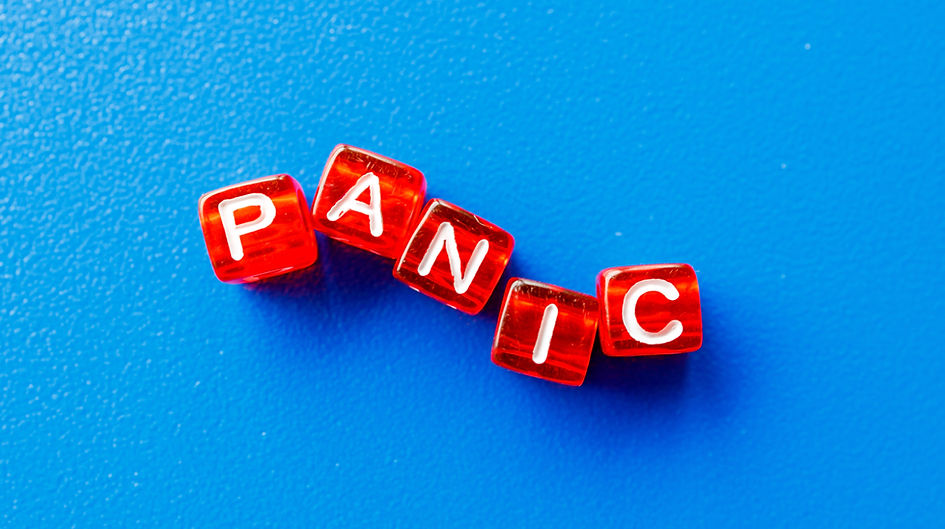Panic Disorder: Understanding Sudden Anxiety & Finding Relief
Helping you regain control over unexpected panic attacks

Overview
Experiencing occasional anxiety is normal, but when sudden, intense waves of fear strike without warning, accompanied by a racing heart, shortness of breath, and dizziness, it may be Panic Disorder. Panic Disorder is a type of anxiety disorder characterized by recurrent panic attacks that occur unexpectedly, leaving individuals feeling overwhelmed and fearful of the next episode.
These attacks can be physically and emotionally exhausting, affecting daily life, relationships, and overall well-being. At Disha Mental Health and Wellness, we offer specialized therapy, coping techniques, and support to help individuals overcome panic attacks and regain a sense of calm and control.
Signs & Symptoms of Panic Disorder
A panic attack is a sudden episode of intense fear or discomfort that peaks within minutes and may include the following symptoms:
Physical Symptoms:
✔ Rapid or pounding heartbeat (palpitations)
✔ Shortness of breath or feeling like you’re choking
✔ Chest pain or tightness
✔ Dizziness or feeling lightheaded
✔ Sweating, chills, or hot flashes
✔ Nausea or stomach discomfort
✔ Tingling sensations or numbness
Emotional & Cognitive Symptoms:
✔ Intense fear of losing control or going crazy
✔ Feeling detached from reality (derealization)
✔ Fear of dying or having a heart attack
✔ Extreme sense of impending doom
For those with Panic Disorder, these attacks happen frequently and unexpectedly, often leading to fear of future attacks, known as anticipatory anxiety.
Common Triggers of Panic Attacks
🔸 Chronic Stress – Prolonged periods of emotional or physical stress
🔸 Trauma or PTSD – Past experiences triggering an extreme fear response
🔸 Phobias – Exposure to specific fears (e.g., crowds, heights, flying)
🔸 Medical Conditions – Thyroid issues, heart problems, or chronic illnesses
🔸 Caffeine & Stimulants – Excessive consumption of coffee, energy drinks, or certain medications
🔸 Substance Withdrawal – Sudden stopping of alcohol, nicotine, or drugs
While panic attacks often seem to occur out of nowhere, they may be linked to underlying stress, anxiety disorders, or past traumas.
How Panic Disorder Affects Daily Life
If left untreated, Panic Disorder can lead to:
✔Avoidance Behavior – Fear of situations where attacks occurred before (e.g., public places, social events)
✔Agoraphobia – Avoiding leaving home due to fear of having a panic attack in public
✔Relationship & Work - Struggles – Difficulty maintaining personal and professional connections
✔Depression & Increased Anxiety – Overwhelming feelings of hopelessness and isolation
Treatment for Panic Disorder
At Disha Mental Health and Wellness, our Panic Disorder Treatment Program includes:
✔ Cognitive-Behavioral Therapy (CBT) – Teaching individuals to identify and change panic-inducing thoughts.
✔ Exposure Therapy – Gradual exposure to triggers in a safe and controlled environment.
✔ Breathing & Relaxation Techniques – Deep breathing and grounding exercises to calm the body during an attack.
✔ Mindfulness & Meditation – Helping individuals stay present and reduce anticipatory anxiety.
✔ Medication Management (If Needed) – Consultation with psychiatrists to explore medication options for severe cases.
How Can We Help You?
At Disha Mental Health and Wellness, we provide:
💡 Personalized Therapy Plans to address your unique triggers and fears.
💡 A Safe & Supportive Environment where you can express your concerns without judgment.
💡 Experienced Therapists Specializing in Anxiety Disorders with proven treatment strategies.
💡 Long-Term Solutions to help you break free from panic attacks and regain confidence.
You Are Stronger Than Your Anxiety - Let’s Take Control Together! 🚀

